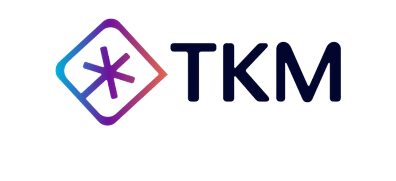The range of possibilities opened up by artificial intelligence is set to revolutionise every sector. The field of industrial protection is no exception. But to what extent will AI really change the way patents are approached? We take a look.
AI: is an artificial intelligence legally capable of inventing ?
The European Patent Office (EPO), the US Patent Office (USPTO) and the UK Patent Office (UKPTO) have confirmed that the status of inventor can only be attributed to an « individual », thereby enshrining in case law the fact that the notion of a natural person with responsibility is mandatory in order to meet the definition of inventor. Thus, Artificial Intelligence does not correspond to this definition and as such cannot be designated as such in a patent application.
The risk that tomorrow’s inventions will be generated by machines and that the owners of these machines, as their successors in title, will become the holders of the rights arising from them, has therefore been averted for the time being, at least in Europe and the US.
On the other hand, it should be noted that in South Africa, in the case of the DABUS judgment, a divergent position was taken, recognising the notion of inventor in an AI. As for Canada, the case is still under review.
The ingenious « human » inventor can therefore be partly reassured. And with him, his patent or IPR engineer, who will continue to have a question-and-answer session with the inventor(s) as soon as an invention declaration is ready and ready to be filed.
These exchanges and collaboration are essential. Their aim is to understand and formulate the invention sufficiently, to have the clearest possible vision of it so that it can be integrated into the applicant’s protection strategy, and thus to establish the wisest filing strategy in the light of the descriptive elements and existing elements found in the prior art search. (See what TKM can do for you in this decisive stage of mapping the environment of your filing project)
AI: an artificial intelligence capable of protecting ?
However, it is perfectly conceivable that a well-trained AI could replace all or part of the patent engineer’s job. In theory, there seems to be no reason why an AI should not be trained to :
- Identify in its knowledge nodes the questions to ask an inventor
- Obtain relevant answers defined according to registered quality criteria, while matching them with the regulatory requirements of each national state, with the aim of syntaxising all the information collected.
- To provide an output document worthy of a patent application.
However, this approach does not seem to us to take into account a number of important elements: generative AI is formatted according to a defined learning scheme. It is doubtful that, given the diversity of ways in which inventors express themselves, the variety of technical fields in which inventions are made, the complexity of protection strategies depending on the characteristics of the applicant (multinational, SME, start-up, academic, etc.) and the specificities of the drafting of national laws applicable in each country, the required quality and precision will be present. In any case, what seems certain to us is that a generic AI trained to adapt to all these scenarios has very little chance of offering a satisfactory and reliable service. That’s why TKM has always chosen to develop and offer trusted AI, trained for specific business contexts and use cases, enabling us to claim levels of accuracy where the added value provided by the AI is no longer in question.
Would you like to find out more about our specific training programmes from a trusted AI? Contact us.
AI: an intelligence capable of enhancing professional skills?
As the EPO’s Vice-President of Corporate Services, Nellie Simon, pointed out at a conference in London in March 2024 on the subject of « IP and emerging technologies in Europe »: « Although it creates remarkable tools that can increase the capabilities of IP professionals, generative AI is not a substitute for human expertise ». The EPO’s approach is therefore to « capitalise on the opportunities offered by AI to enable its staff to perform higher added value tasks ».
This is undoubtedly where AI comes into its own in the world of intellectual property, and particularly in the exploitation of patent literature. Generative AI can therefore be seen as a quality support tool.
Indeed, today’s innovations are characterised by their complexity and interdisciplinary nature. This complexity is reflected in the fact that a new technology or a new technical concept is made up of a set of closely related innovations, each belonging to a specific technical categorisation, multiplying the fields of exploitation when searching for information in patent databases.
When carrying out a state of the art or a market study on a sector of activity, it is necessary to search through several hundred or even thousands of documents to find those of interest. In addition, it is essential to look beyond patents to understand innovations and their competitive and economic context. Market analyses and sector reports can be very useful for understanding emerging trends and completing the vision of the subject.
Another important tool is technological and scientific watch, which involves monitoring scientific publications, conferences, theses, the specialist press and industry forums. Finally, professional social networks and collaboration platforms offer valuable information on current trends, expertise and ongoing collaborations in various technical fields.
This global approach, combining patent databases with diversified sources of information, enables companies to develop a richer and more up-to-date understanding of the innovative environment in which they operate, and to adapt their protection strategy where necessary.
Creating strategic intelligence from this mass of data can be done by cross-referencing keywords, index codes, etc. But sometimes these techniques are no longer enough. And it is here, among other things, that AI can provide valuable assistance in its ability to summarise, cross-reference weak signals or decompartmentalise the perspectives of strategic thinking.
Trusted AI and IPR: a winning duo for innovative protection strategies
Trained AI, based on a dedicated model, can deliver powerful results when it comes to exploiting the fruits of documentary intelligence, whether focused on patents or multiple sources. It saves considerable time, limits the risk of human error and enables patent analysts or engineers to be repositioned on tasks with a much greater strategic impact on the company.
This trusted AI, conceived, designed and trained to meet a specific need, is undoubtedly an invaluable decision-making aid for any industrial property and innovation player.
Why is this trusted AI particularly useful for IPRs?
In certain hyper-competitive sectors, it is unthinkable to take the risk (during an FTO or a prior art search, for example) of missing « the » document that counts! A trusted AI can filter out 80% of the irrelevant information brought back by a well-targeted search strategy… Can you imagine the colossal time saving that such a solution can achieve?
In the first case, we talk about « recall »: in other words, we try to maximise the model’s ability to find ALL the relevant documents. This will be at the expense of « precision », i.e. the model’s ability to find relevant documents as a priority.
This trade-off between ‘recall’ and ‘precision’ is the result of an exchange between the CIO and the data scientists, and the adaptation of the model to each specific case. In our experience, this is why we do not believe in a wonderfully efficient generic AI, whatever the case (technical scope, nature of the documents to be processed, results sought: FTO, Intelligence, etc.).
On a subject as sensitive and strategic as Industrial Property, will you trust a tool that immediately admits to being wrong in 60% of cases?
IPMetrix, the monitoring and analysis software to support your protection strategies
Patents, scientific articles, collaborative projects, the web, theses… This literature is full of useful information for deploying a winning industrial property strategy.
IPMetrix is a software platform developed by TKM teams specialising in data science and artificial intelligence. It enables potentially strategic information held in scientific and technological literature available on a global scale to be scanned and exploited. Its technology enables all relevant data to be gathered, concatenated and analysed in a single space, and any weak signals to be extracted.
In terms of industrial property, it will enable you to :
- Automate your monitoring thanks to trusted AI
- Nurture dialogue with inventors during a patent application project
- Significantly reduce the documentary steps involved in a patent application project
- Increase your chances of finding the document you need, even in non-patent literature, during an office examination procedure or any other pre-litigation situation
- Regularly map your competitors’ portfolios, as well as those of your suppliers and partners
- Detect useful start-ups in good time
- Provide innovation teams with targeted (accurate) and capitalised information
- Train artificial intelligence algorithms based on your specific needs, thereby saving you real time
- Capitalise on the knowledge acquired through monitoring, building up a body of documentation that constitutes a genuine intangible asset for the company.
See also: IPM the intelligence software that revolutionises strategic decision-making.
TKM, software and services company: a hybrid offering to keep you focused on your core business
Are you interested in implementing a tool like IPMetrix, but are unable (or worried about being unable) to exploit the software to its full potential? Don’t worry, TKM offers a full range of services to complement its software. Our team of expert engineers can set up a research strategy for you, collect and organise your raw data, set up your data architecture, etc.
Do you need to outsource monitoring or research on a one-off or regular basis? Don’t worry, TKM can help you too.
Whatever happens on your side, you can stay focused on your core business: analysis and strategic decision-making.
And thanks to this hybrid offering, you have access at all times to an up-to-date database that is specific to your needs, scalable and relevant.
As you can see, TKM is positioned as a strategic partner to support your decision-making and help you gain full control of your environment. Would you like to find out more? Contact our experts today.


